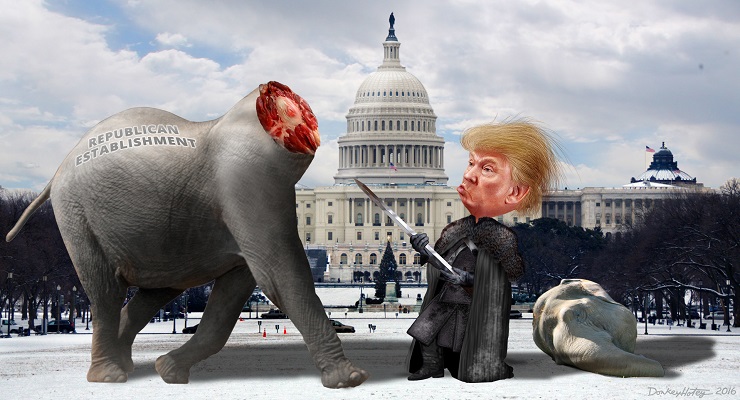
Republicans in Congress disagree with President Trump on several issues including his decision to withdraw troops from Syria and have shown a lot of dissatisfaction with “Ukrainegate” and the way Trump has handled the problem. However, not many of them have the courage to speak up against the President.
An intelligence community whistleblower’s complaint raised concerns that Trump might have used his presidential office to exert undue influence over Ukrainian counterpart in a bid to obtain information from him on political rival Joe Biden for which the White House would then release military aid to Ukraine.
Following the release of the transcript of the call made to the Ukrainian president, Democrats launched an impeachment inquiry against Trump. An opinion poll also showed that more and more Americans want the Trump to be removed from office.
The backlash increased following what was tagged as Trump’s brazen support for external influence in American politics. Trump had said in response to Ukrainegate that he has the right to call on any country to investigate corruption in America.
Despite all these controversies there are still few Republicans who have shown any serious support for Congressional oversight of the President’s recent actions, not to say support for the impeachment inquiry. Republican protest against Trump has barely surpassed murmuring and none of them has strongly spoken out against the President.
Instead what happened was Senator Lindsey Graham (R-S-C) coming out strongly against the impeachment of the Trump and warning Democrats that there will be a tough fight against it in the Senate controlled by the Grand Old Party (GOP).
Professor Nick Smith, who teaches ethics and philosophy at the University of New Hampshire, said “… President Trump seems to have such a personal hold on the party – more like a cult leader than a US president – that the exits are closed as the party transforms into his image.” Kathleen Hall Jamieson, director of the University of Pennsylvania’s Annenberg Public Policy Centre, thinks that Trump’s strong influence over the GOP is as a result of the absence of alternative leadership in the party since the death of John McCain last year.
In this regard, Lee Drutman has argued that “collectively, Republicans want to keep Trump popular so they can keep winning elections. In our era of increasingly nationalized politics, most Republicans can’t run independently of the president, even if they want to. Perhaps recognizing this, many have instead tied themselves more closely to him. Trump defines the Republican Party brand as president, so if Trump is unpopular, the Republican Party is unpopular, which would likely spell steep electoral losses for the party.”
Read more here.
Leave a Reply